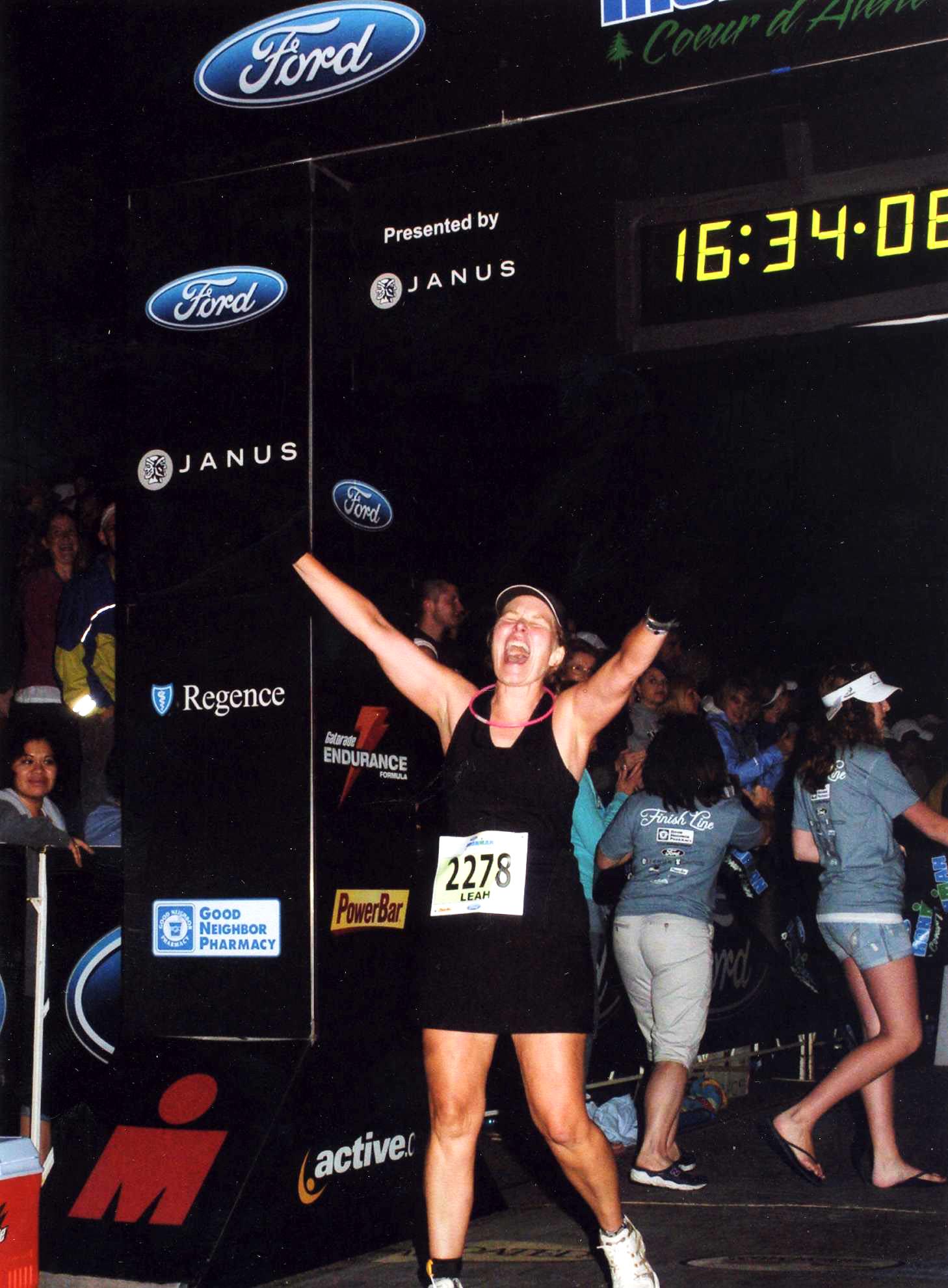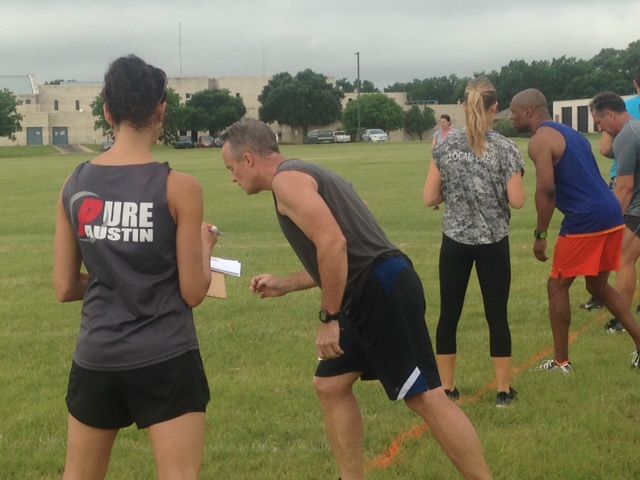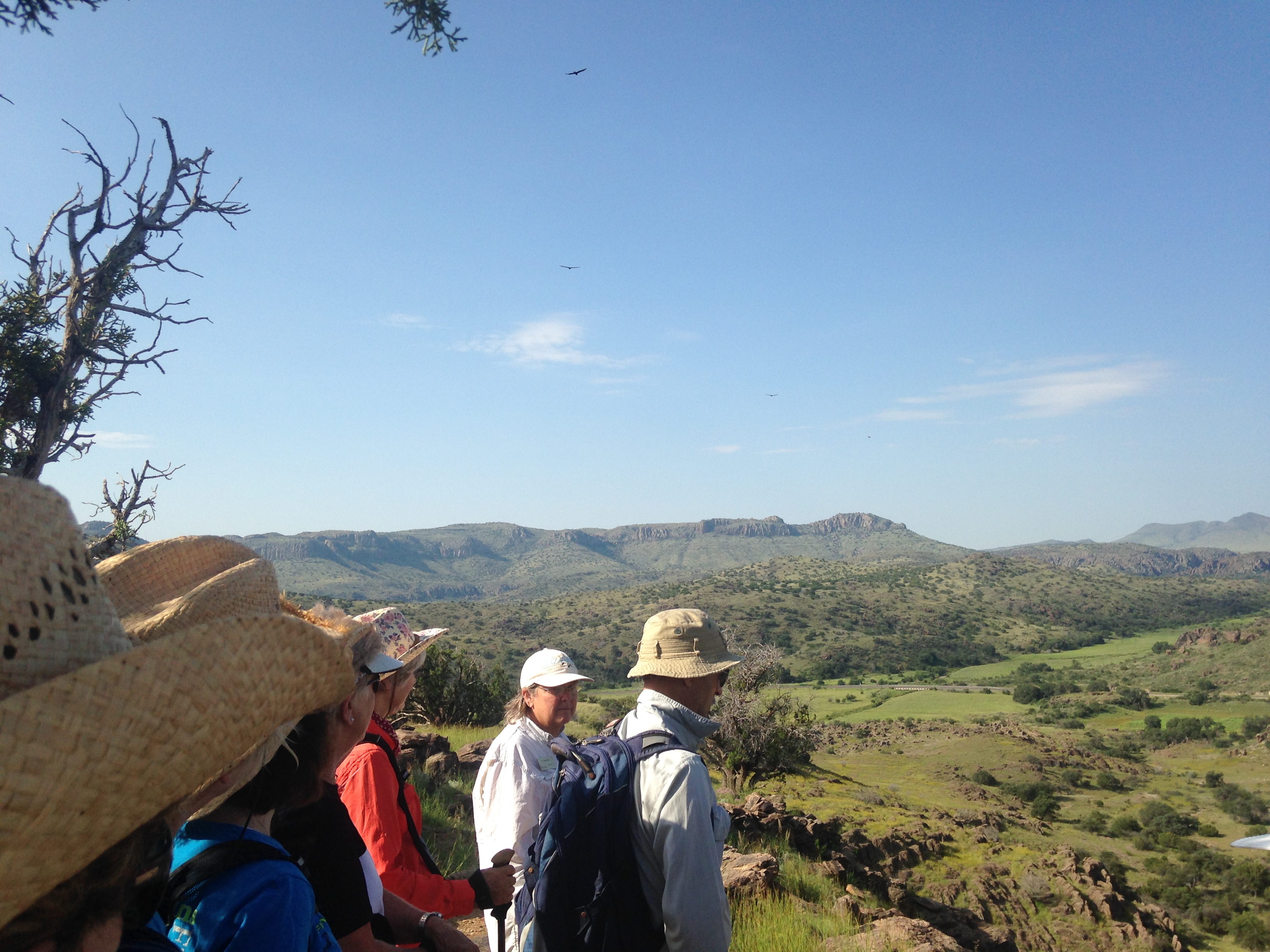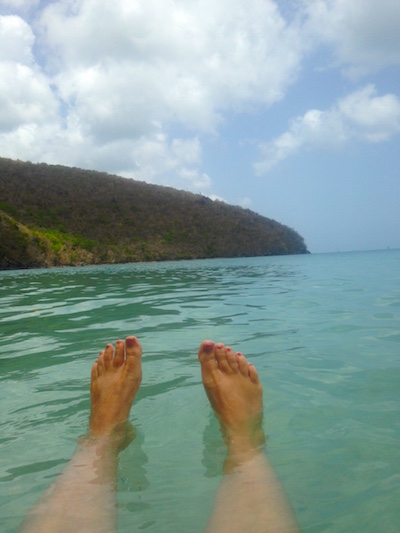Whenever a vacation ends, I’m always reminded of The Enterprise slowing down from warp speed. The stars quit blurring and gently come back into focus; that high-pitched whine of urgency recedes to the steady hum of cruising speed; life returns to its normal pace.
Back to the real world, Scotty.
Sigh. If only life after vacation didn’t feel so crappy.
What is Post-Event Letdown?
Anyone who’s ever set sights on a goal race understands the malaise that comes after its completion. For some time, the focus has been on what is needed to accomplish this significant feat, be it a first event or achieving a PR. Once that long-anticipated day has come and passed, athletes commonly feel a variety of sensations collectively known as post-event letdown (PELD).
According to an ESPNW article, there are physical and psychological components to PELD. First, the physical side. Sure, the activity was taxing; muscles ache, energy stores are low, and the immune system is compromised by maintaining such a sustained training effort.

If that big goal involved a marathon, for example, simply sitting down on the toilet or navigating stairs becomes a physical ordeal. For endurance events, such as Ironman-distance triathlons and trail ultras, sleep deprivation adds to the bodily toll. How ’bout more everyday items, such as the pain of sunburn, road rash, chafing, and (for guys) tender, shredded nipples? Yikes.
Yes, there’s a physical price to pay for many a goal event, no matter the athlete’s caliber or focus. But what many may not bank on is the psychological toll that goal events extract.
Sports psychologist Doug Jowdy, who’s worked with individuals and the U.S. Olympic team, provided some key mental symptoms of PELD in that ESPNW article: confusion, apathy, mild depression, emptiness, loneliness, and a sense of loss.

I can personally attest to these feelings, as I’ve experienced PELD many times over the years. Recently, my husband got a taste. He spent a year physically preparing for a competition — including significant weight loss, knee surgery, and regular work with a trainer. In addition to that sustained physical activity, he maintained a high level of anticipation for months.
[You can read about his experience here: “Finding Workout Motivation at Home”]
Then, suddenly, it was all over. Thank goodness his trainer is currently helping him wade through the mire of emotions by mixing up the routine, but he’s still struggling with workout apathy.
What I’ve recently discovered is that PELD also applies to vacations.
Re-Entering the Real World

I’ve had a whirl-wind schedule of travel this summer. Most recently, I spent a week at the Davis Mountain Fitness & Training Camp in West Texas. For years, I’ve wanted to attend but one thing or another (usually childcare duties) got in the way. A chance encounter at the airport with an old friend and a subsequent roommate cancellation suddenly opened the camp door for me. And so there I was last week: hiking, running, crafting walking sticks, swimming relays, watching the stars, and breathing the rarified air of the Davis Mountains with some 100 other like-minded individuals. It was pure fitness heaven on earth!

Today was my first day back at work. Much like after a goal event, I can’t seem to focus on the task at hand. My concentration is shot, the brain foggy. It feels lonely and disconnected here at the computer; I miss the constant people contact I’d experienced at camp. Though I spent much of the previous day getting caught up on sleep, my body feels weighty and listless. I’m crabby. None of the things that need to get done seem remotely interesting.
What I need is to apply the same techniques I normally utilize in dealing with athletic-related PELD to vanquishing my end-of-vacation blues.
5 Tips for Defeating Post-Event Letdown
Deal with the physical side. I don’t care how relaxing the vacation was, some recovery is always needed. Care for your body by counteracting jet lag with needed sleep, getting a healthy meal, and drinking plenty of water. I often feel the need for some detoxing after the various vacation foods I’ve consumed.
Thoroughly enjoy the event. Bask in the glow by taking time to view photos. I always journal about my trips, which includes making lists (such as “What I Actually Wore” and “Things to Pack Next Time”). This is akin to reading/writing race reports — it allows you to celebrate what you’ve done. Sharing with others is always fun, too.

Be sad (for a while). It’s okay to mourn the passing of that wonderful trip. But don’t wallow; set a time limit. It’s much like dealing with a bad race; my Ironman coach always gave me 24 hours for a pity party. When the alarm rings, it’s time to move on.
Set realistic expectations for the first day back. Thank goodness today was a “catch-up” day. Simple tasks, such as going through the inbox, straightening out my desk, and adding upcoming calendar items are all good first-day-back activities (along with laundry and unpacking). Don’t schedule a big work presentation right after vacation; your heart won’t be in it, so your energy will be flat. Smart scheduling will help accommodate a day marked by reduced concentration and lack of enthusiasm.
Make a plan for the future. It’s a wise move to think ahead, which includes arranging for a break and setting the next adventure on the calendar. I’ve committed to camp next year, so I can concentrate on preparing (ahem, riding my bike). And, because this is my wild and wacky summer of travel, yet more trips are looming — I can focus on what wonderful things the hubby and I will do in Tel Aviv and the fun I’ll have this fall at the Grand Canyon with girlfriends.
The best cure, after all, for dealing with post-event blues is to always have something exciting planned for the future.


Today was my first day back from the 2016 Davis Mountains Fitness & Training Camp. Sigh. It IS hard to get back to the \”real world.\” Next year\’s camp: Aug. 6 through 12. Here\’s the link to camp website: http://www.fitnesscamp.org